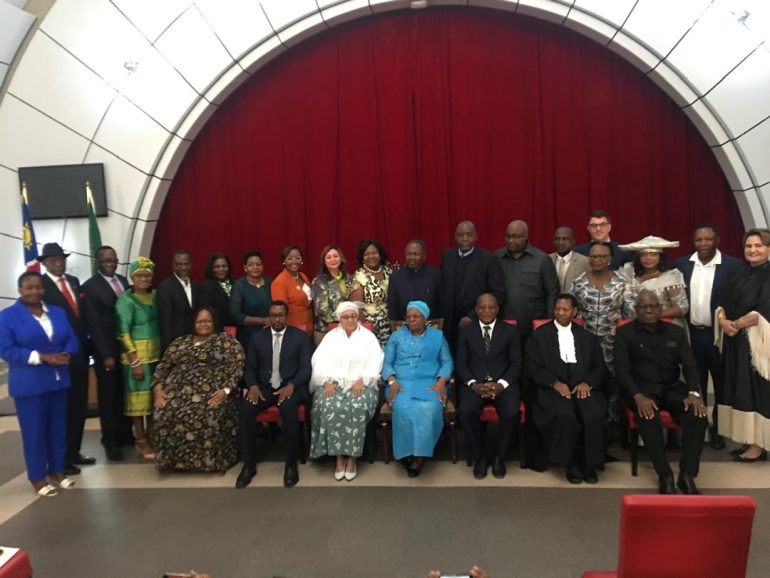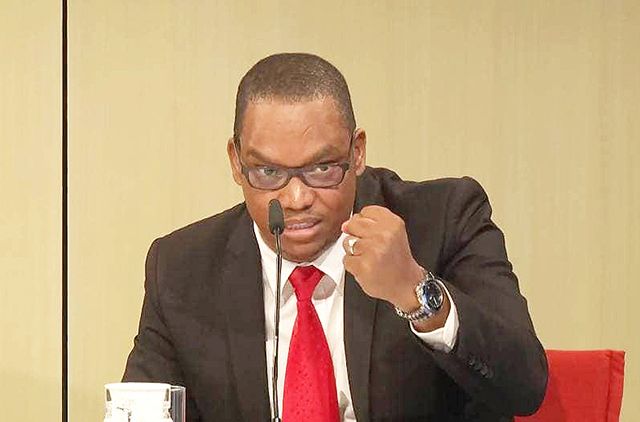Omanyano ovanhu koikundaneki yomalungula kashili paveta, Commisiner Sakaria takunghilile
Veronika Haulenga
Omanyano ovanhu koikundaneki yomalungula kashili paveta, Commisiner Sakaria takunghilile
Veronika Haulenga
Listeners:
Top listeners:
-
play_arrow
Omanyano ovanhu koikundaneki yomalungula kashili paveta, Commisiner Sakaria takunghilile Veronika Haulenga

By: Envaalde Matheus
Some experts say President Netumbo Nandi-Ndaitwah’s newly appointed Cabinet is inclusive, prioritizing technocrats and competent individuals over traditional political appointments.
Experts commend her for assembling a team that reflects a balance of age, tribal diversity, racial representation, and regional inclusion.
They said the President has shifted away from appointing leaders based solely on their struggle credentials.
Former diplomat Pius Dunaiski has suggested that experienced ministers who were not retained in the new Cabinet should be appointed as advisors or ambassadors.
“Those who were not appointed but remain valuable, such as Tom, Shiimi, and others who performed well in the previous administration—should not be overlooked,” he said.
Dunaiski said their experience and skills are highly valuable.
“…. and fortunately, many will still serve in Parliament, where they can contribute through standing committees.”
He said, while they may no longer be ministers, their expertise should not be lost.
“Appointing them as special advisors to the President or various ministries would be a strategic move,” he said.
Dunaiski said: “Some could be retained as ambassadors, allowing the government to leverage their decades of experience when needed.”
Political analyst Rui Tyitende said reforms are needed in the bureaucracy, where bottlenecks hinder the implementation of policies.
“The current President has pledged to ensure the construction of 10,000 houses per year. However, achieving this goal requires more than just political will,” he said.
Tyitende said while ministers serve as the political heads of their respective ministries, real policy implementation happens within institutions, the bureaucracy.
“This is where structural bottlenecks exist, embedded within various levels of administration, including executive directors, deputy executive directors, directors, and chief control officers.”
“For meaningful progress, serious reforms must be undertaken within the bureaucracy to remove these obstacles and improve efficiency,” said Tyitende.
Written by: Terence Mukasa
#NewsOnOne #NewsUpdate #OneAfrica cabinet appointments Dr. Netumbo Nandi Ndaitwah
Similar posts
Windhoek Weather
Most popular

Mbumba signs off new benefits for retired political office bearers

Namdia Heist: More questions, lots of confusion

Omuhwahwameki Michael okuunganeka oshikonga shoku patitha oostola dho Rani moshilongo ashihe.

Walvis Bay woman loses over N$777.000 to a fraudster

Dimbulukeni Nauyoma – fate or wrong turn?
Copyright 2025 Future Media (Pty) Ltd | Website by Digital Platforms
Tel: +264 83 000 1000 | Email: news@futuremedia.com.na






